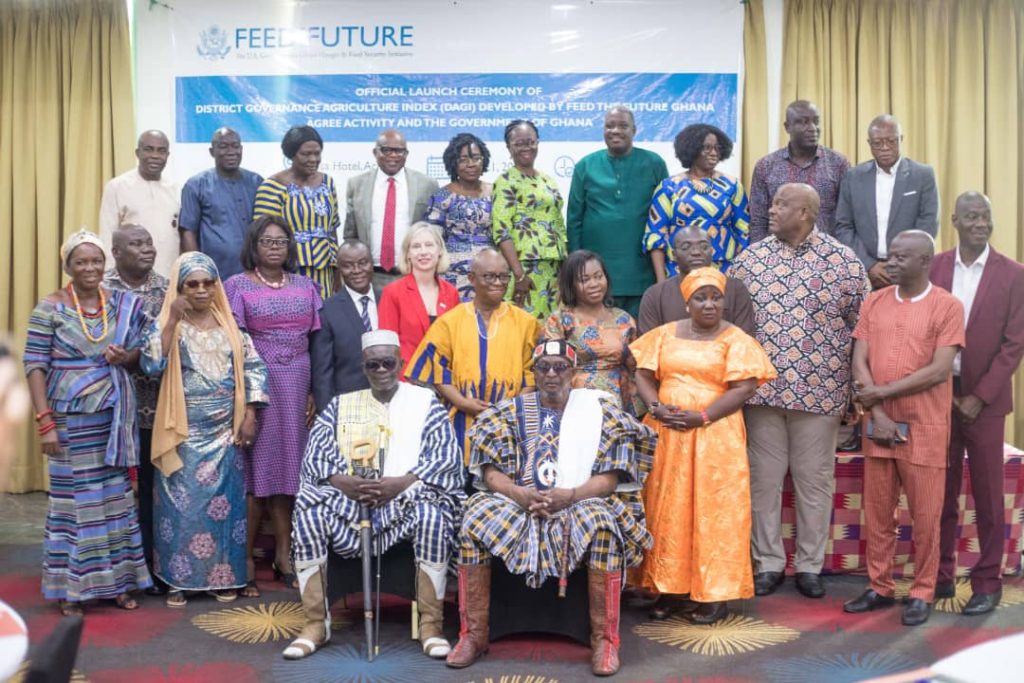By Patrick Ofoe Nudzi
Accra, June 23, GNA – The Local Government Service (LGS) has adopted some indicators to measure the performance of Metropolitan, Municipal and District Assemblies (MMDAs) in agricultural development at the local level.
The indicators include the allocation of at least five per cent of MMDA expenditure to agriculture excluding National Farmers Day celebration and ensuring that at least 80 per cent of planned agricultural activities in their annual action plan were implemented by the end of the year.
They are also to ensure that at least 40 per cent of MMDA annual agricultural expenditure is on post-production activities (storage, processing, market linkages) by the end of the year and at least 60 per cent of planned agricultural interventions address gender gaps implemented by end of the year.
The four indicators, known as the District Agriculture Governance Index (DAGI) is a self-assessment tool developed and institutionalised into the Local Government Service Performance Management System.
The DAGI support programme has been designed to address governance gaps in the agricultural sector by specifically supporting central and local government to better understand progress in agricultural sector development.

The programme, funded by USAID, is being implemented by Care International.
It would also support debate and dialogue on accountability in the districts whilst increasing awareness and access to information on agricultural development.
Speaking at the official launch, Dr Ato Arthur, Head of the Local Government Service, said the integration would not only help to assess, monitor, and evaluate the performance of MMDAs implementation of agricultural programmes and policies but address challenges based on reliable data.
“It will empower our MMDAs and RCCs to set targets, measure progress, and allocate resources effectively and efficiently to uplift the agricultural sector. We aim to create an enabling environment that encourages innovation, enhances productivity, and improves the livelihoods of our farmers and rural communities,” he said.
Dr Arthur said placing agriculture at the forefront of resource allocation decisions was a commitment to rural development, poverty reduction, and sustainable economic growth.
Madam Agnes Loriba, Programme Team Lead, Right to Food, Water and Nutrition, Care International, said it was prudent to forge partnerships with institutions and adopt approaches that promoted self-sufficiency.
DAGI was implemented in 28 districts of the USAID Zone of Influence in the five Regions in northern Ghana between 2017-2020 on a pilot basis
It improved agricultural governance, enhanced women’s voice and leadership, and women’s economic empowerment.
Madam Kimberly Rosen, USAID-Ghana Mission Director, in her speech said: “Over time, we can expect to see efficient use of public resources in the agricultural sector with the use of DAGI index.”
She said that should culminate in increased productivity, improved food security and stable incomes for farmers.
GNA